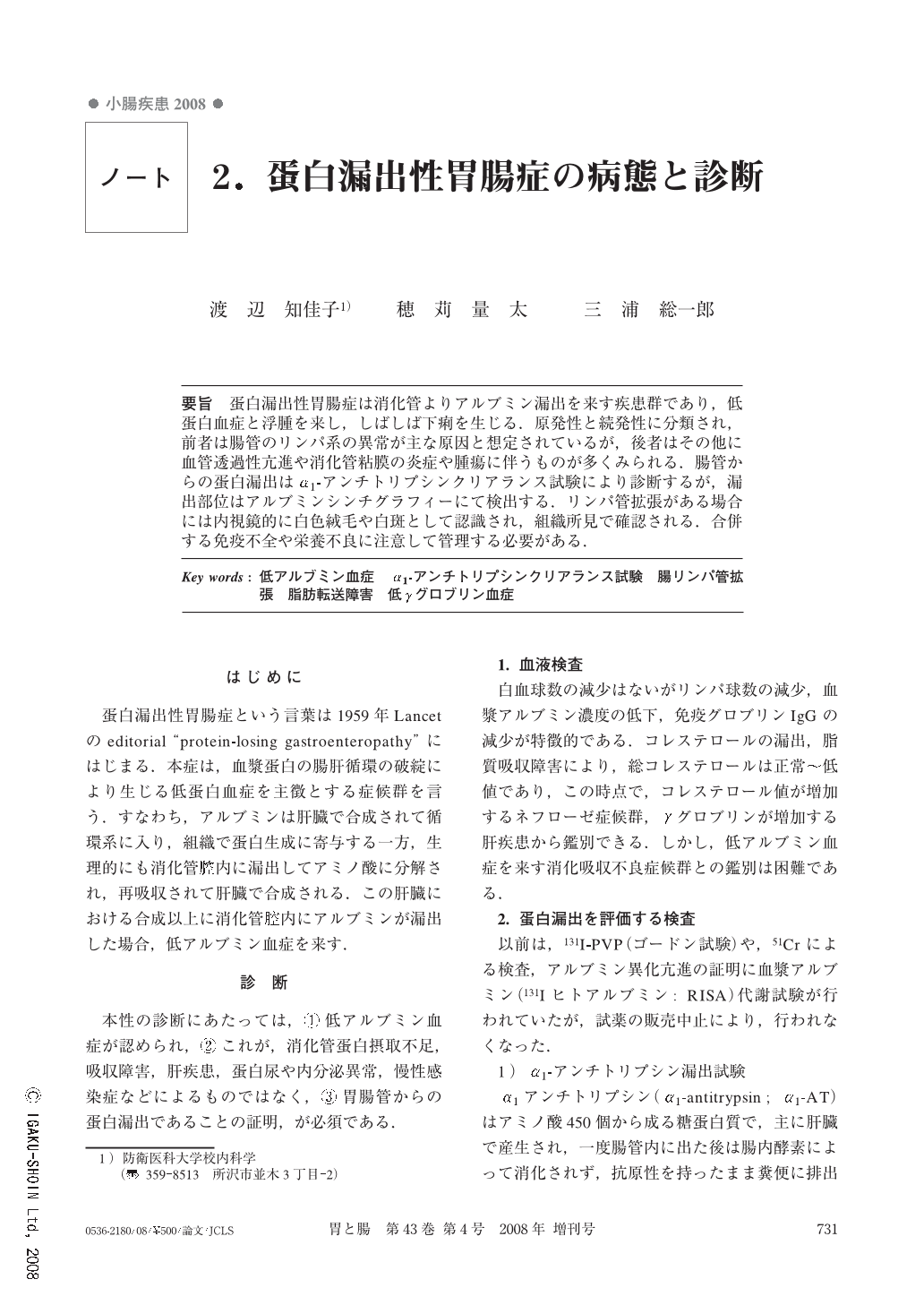Japanese
English
- 有料閲覧
- Abstract 文献概要
- 1ページ目 Look Inside
- サイト内被引用 Cited by
要旨 蛋白漏出性胃腸症は消化管よりアルブミン漏出を来す疾患群であり,低蛋白血症と浮腫を来し,しばしば下痢を生じる.原発性と続発性に分類され,前者は腸管のリンパ系の異常が主な原因と想定されているが,後者はその他に血管透過性亢進や消化管粘膜の炎症や腫瘍に伴うものが多くみられる.腸管からの蛋白漏出はα1-アンチトリプシンクリアランス試験により診断するが,漏出部位はアルブミンシンチグラフィーにて検出する.リンパ管拡張がある場合には内視鏡的に白色絨毛や白斑として認識され,組織所見で確認される.合併する免疫不全や栄養不良に注意して管理する必要がある.
Protein-losing gastroenterolopathy is a syndrome characterized by albumin loss from the gastrointestinal tract. The main clinical presentation is hypoproteinemia and edema, often accompanied with diarrhea. It is categorized into primary and secondary protein-losing.
The primary protein-losing enteropathy is mainly due to lymphatic abnormalities of the GI tract, while the secondary one is due to various disorders including increased vascular permeability, mucosal inflammation, and GI neoplasm. Protein-losing is diagnosed by the alpha-1 antirypsin clearance test and albumin scintigraphy. If there is lymphangiectasia of the intestinal mucosa, it can be recognized endoscopically as white villi or white spots, and histologically confirmed.
Protein-losing gastroenteropathy should be managed carefully in consideration of the accompanying malnutrition and immunological abnormalities.

Copyright © 2008, Igaku-Shoin Ltd. All rights reserved.


